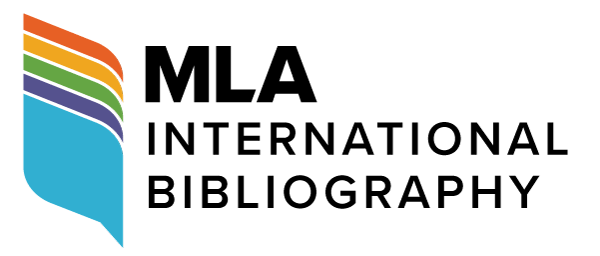The problem of the part of speech classification in the modern linguistics
DOI:
https://doi.org/10.31652/2521-1293-2019-28-13-23Keywords:
parts of speech, parts of speech classification, the criteria of classification, syncretic words, linguistic universalsAbstract
Introduction. All words of a language are divided into classes which are called parts of speech. Parts of speech are the main component of the morphological level in the language system and the starting point for any research. The concept of the speech parts as an objective grammatical classification of words is valuable for economical and adequate language descriptions. Moreover, parts of speech are an important source of human cognitive activity and means of categorization. The reference to a certain lexical-grammatical class determines the peculiarities of a language unit in speech, hence it demonstrates the importance of the parts of speech classification in the teaching of foreign languages. In this respect the controversial issues of the part of speech theory are considered to be one of the main tasks of modern linguistics. The polyfunctional and syncretic character of some words contributes to the complexity of creating a universal part of speech theory.
Purpose. The aim of this study was to analyze the solving of the speech parts’ differentiation and to outline the prospects of this theory.
Methods. The issue of the speech parts classification has been examined in detail by means of the inductive and deductive methods for analyzing and synthesizing scientific theories and concepts.
Results. The modern linguistics focuses on the description of the speech parts in different languages and on the search for grammatical features and oppositions that characterize speech parts for different language types. The aim of the modern grammatical theory is to reveal the universal component and to explain its existence. The universal character of the speech parts can be outlined as follows: a) the text of any language is segmented into parts which can be correlated with the word; b) these parts differ from each other; and c) all these parts are determined by the affinity of human thinking.
In the parts of speech theory there is a row of controversial aspects: the number of speech parts; units that are classified as parts of speech; the main property (grammatical, lexical-grammatical or semantic) of a part of speech; the hierarchy of parts of speech; and the reference of some words to a certain part of speech.
Conclusion. The prospects of the part of speech theory are in the recognition of their universal character, in the consideration and differentiation of syncretic units and words.
References
Абрамов Б. А. Теоретическая грамматика немецкого языка. Сопоставительная типология немецкого и русского языков / под. ред. Н. Н. Семенюк, О. А. Радченко, Л. И. Гришаевой. Москва : ВЛАДОС, 2004. 286 с.
Алпатов В. М. О разных подходах к выделению частей речи. Вопросы языкознания. Москва, 1986. № 4. С. 37–46.
Безпояско О. К., Городенська К. Г., Русанівський В. М. Граматика української мови. Морфологія : підручник. Київ : Либідь, 1993. 336 с.
Бондарко А. В. К вопросу о функциях в грамматике. Известия АН СССР. Сер. лит. и яз. 1992. Т. 51. № 4. С. 14–26.
Боровська О. О. Методологічні засади дослідження німецьких партиципів у рамках генеративної граматики. Наукові записки Національного університету «Острозька академія». Серія «Філологічна». 2015. Вип. 59. С. 33–36.
Горпинич В. О. Морфологія української мови. Київ : Академія, 2004. 336 с.
Данилюк І. Проблема класифікації частин мови: досягнення і перспективи. Функціонально-комунікативні аспекти граматики і тексту. Наук. Вісник Херсонського держ. ун-ту: Лінгвістика : зб. наук. праць. 2005. Вип. 1. С. 70–77.
Долгополова Л. А. Неличные формы глагола в современных германских и славянских языках. Сер. «Филология. Социальные коммуникации». 2011. Том 24 (63). № 4. Часть 2. С. 12–16.
И. П. Иванова, В. В. Бурлакова, Г. Г. Почепцов. Теоретическая грамматика современного английского языка : учебник. Москва : Высшая школа, 1981. 285 с.
Кацнельсон С. Д. Типология языка и речевое мышление. Ленинград : Наука, 1972. 217 с.
Кочерган М. П. Вступ до загального мовознавства. Київ : Видавничий центр «Академія», 2001. 368 с.
Кубрякова Е. С. Язык и знание. Москва : Языки славянской культуры, 2004. 560 с.
Лукин О. В. Теория частей речи в контексте философских и логических учений. Ярославский педагогический вестник. 2010. Том I (Гуманитарные науки). № 4. С. 174–179.
Селіванова О. О. Сучасна лінгвістика: напрями та проблеми. Полтава : Довкілля-К, 2008. 712 с.
Тестелец Я.Г. Введение в общий синтаксис. Москва : Издательство РГГУ, 2001. 798 с.
Thielmann W. Wortarten im Kontrast. Jahrbuch Deutsch als Fremdsprache: Wortarten im Kontrast. 2011. Band 37. S. 43–70.
Downloads
Published
Issue
Section
License
Copyright (c) 2024 Olena Borovska, Viktoriia Pidpala

This work is licensed under a Creative Commons Attribution 4.0 International License.








